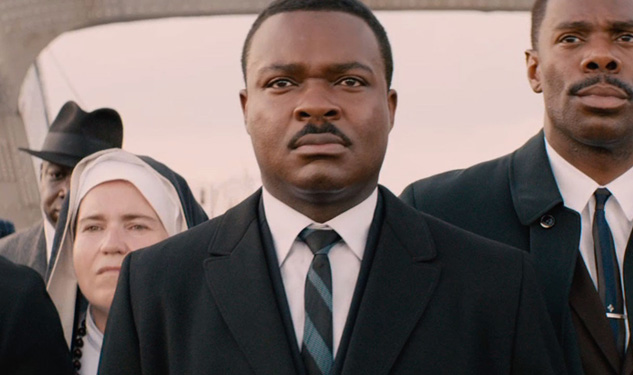
- Awards
Cinema For Peace Awards Celebrate Real Heroes
The surprisingly strong sounds of a gospel song sung acappella washed over a small group of luminaries gathered at SoHo House Friday, at the invitation of Jaka Bizilj, Chairman of the Board of Cinema for Peace. The scene was fitting for an event organized to promote peace and human rights through socially conscious cinema – a welcome counterpoint to the frivolity that can permeate awards season. CFP, which counts Leonardo DiCaprio and Mikhail Gorbachev as patrons, honors films that promote humanitarian causes and further multi-cultural peace and tolerance.
The voice at the Soho belonged to 103 year-old Amelia Boynton Robinson, the catalyst for Dr. Martin Luther King’s invitation to Selma that resulted in the historic march across the Edmund Pettus Bridge, and led to the brutal attack by State Troopers on unarmed civilians. The violence resulted in an outcry across the world. The march from Selma to Montgomery, recalled in this year’s Golden Globe-nominated Selma, was a turning point for African Americans’ struggle for voting rights, and the pride of her part in that achievement is apparent in the dignity and sharp mind Amelia displays. Seated in a wheelchair, her speaking voice was soft enough that you had to crane to hear, but the content of her simple words are worth the effort and resonate today. “I knew it wasn’t right that we were not treated equally,” says the frail woman after receiving the Nelson Mandela Award for the hands of Kweku Mandela Amuah, the grandson of South Africa’s own Nobel Peace Prize laureate. Asked where she got the courage to stand up to authorities she answers, “My mother always told me that I should walk straight. We needed to change how we were seen. We needed to get rid of hate.”
The family of Louis Zamperini was also on hand to accept the prize for Unbroken, directed by Angelina Jolie. The film chronicles the journey of Zamperini, from Olympian to prisoner of war who was brutally beaten and tortured by Mutshuhiro “Bird” Watanabe. Both Louis Zamperini and Amelia Boynton Robinson epitomize people who have been targets of discrimination and physical abuse, yet have survived and advocated not revenge,
but forgiveness.
Abderrahmane Sissako’s French-Mauritanian film Timbuktu about jihadist oppression in Africa was also honored for its depiction of victims of religious hatred. Past honorees have included Sean Penn for his work in Haiti, Leonardo DiCaprio for his contribution to environmental issues, and Ben Affleck for his Eastern Congo initiative. The Cinema for Peace honorees are voted on by a jury of filmmakers, producers, and journalists.
Margaret Gardiner

